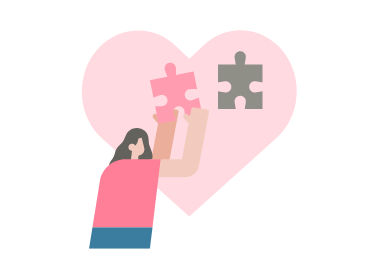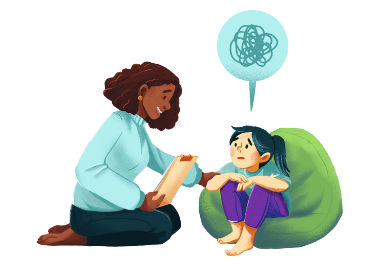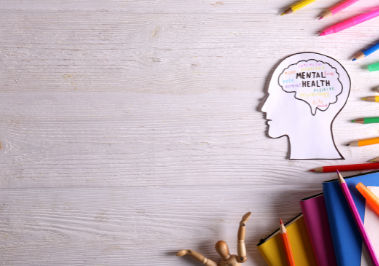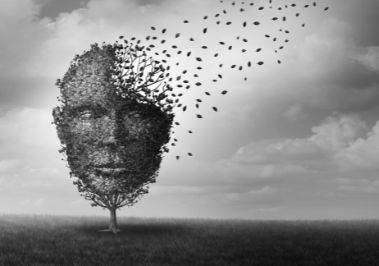
Mental Health Awareness Week 2019 – Body Image - 'The Big Problem'
Mental Health Awareness Week 2019 – Body Image - 'The Big Problem'
Youth Panel Blog

Gender roles are hugely pressurising because they are a generalised view or preconception of how a person should act and live based on their gender. Young people are not ‘one size fits all’ and giving everyone two options on how to live their life causes many problems. Gender roles effect everyone differently but are harmful none-the-less.
Across the UK more than 2,500 counselling sessions about negative body image issues were given to young people through ChildLine, 980 of these were received by 12 to 15 year olds in Northern Ireland. A further 120 counselling sessions were delivered to girls aged 11 and younger. A number of these children and young people also revealed they had been struggling with self-esteem issues, depression and eating disorders such as anorexia and bulimia.
“It’s important all young people realise that everyone is different, and everyone has the right to grow up slowly and be comfortable in their own skin” – Childline founder Dame Esther Rantzen.
According to the National Children’s Bureau, in general girls report lower well-being than boys, with the gap appearing to widen through adolescence. A higher proportion of girls than boys reach the expected level of personal, social and emotional development in early childhood and possibly because of this mental health problems are more frequently identified in school age boys than girls. However, the gender gap in occurrence of diagnosable mental health conditions begins to narrow in adolescence, as emotional problems become more common in girls. Very high levels of mental health needs are also evident in trans and non-binary young people. By early adulthood, women are more likely to be diagnosed with a mental health condition than men. Girls and young women are more likely than boys and young men to have depressive disorders and anxiety disorders and high levels of self-harm are evident among girls and young women in particular. However, males aged 15-24 are more likely to die by suicide than females. Suicide is the single biggest killer of men under 45 in the UK. In general, ‘internalising’ problems (distress is directed inwards) are more common among girls and young women than boys and young men, who are more likely to exhibit ‘externalising’ problems (that manifest through ‘acting out’). This is most likely a sign of toxic masculinity.
Toxic masculinity refers to actions that discourage displays of emotion-other than anger- in men while also encouraging behaviour that will deem the male ‘dominant’ in a given situation. Society teaches young boys to connect emotions and vulnerability with femininity, and that being feminine is weak. Even as children young boys who express feelings are compared to girls in a negative context. Common responses to young boys who become emotional include; “Boys don’t cry”, “Man up”, “Don’t be such a baby”, “Don’t cry like a girl”, “Be a man – get over it”. When feelings are dismissed and gender- defining thinking is heard repeatedly a young person learns to avoid expressing their real feelings and begins to bottle up sadness. Over time, such behaviour can lead to a dysfunctional emotional expression and ultimately, depression.
In general, parents, carers and professionals including teachers are better able to recognise behavioural problems in boys and emotional problems in girls. Where children and young people’s difficulties do not conform to gender expectations, they may be overlooked, misunderstood, met with harsh responses or not effectively addressed. Parental influences play a significant role in children’s emotional and mental health and in facilitating access to professional help. For trans young people, parental support to live openly as their self-identified gender is associated with better mental health
The Good Childhood Report revealed what young people across the UK think about gender roles and stereotypes, and how it can affect their happiness. Across the whole study it was found that children whose friendship group emphasises traditional gender roles and stereotypes have lower well-being than others. The pressure of gender stereotypes is dependent on a child’s environment, one of the most common mentioned was comments about appearances at school. 95% of young people say they have heard jokes or comments being made about other people’s bodies or looks ‘sometimes’, ‘often’ or ‘all the time’. This obviously has a negative effect on the wellbeing of young people, particularly with girls. The distressing trend shows the more a girl is exposed to these jokes or comments, the more unhappy they become with themselves and their appearance. One secondary school aged girl said:
‘I feel judged all the time based on what I wear. It’s like girls are expected to fulfil certain ridiculous expectations.’.
This shows gender roles are part of children’s lives from a young age, but its also clear children and young people are struggling to fit society’s narrow expectations of them. This pressure is horribly affecting the well-being and confidence of young people everywhere.
Being able to be comfortable with your gender identity is hugely important to children and young people’s emotional and mental health as well as their wellbeing. Protecting this should be a crucial part of society for everyone, no matter or age or other social factors.

Mental Health Awareness Week 2019 – Body Image - 'The Big Problem'
Youth Panel Blog
Mental Health Awareness Week 2019 – Body Image - 'Mind Over Muscle'
Youth Panel Blog
Mental Health Awareness Week – Body Image – ‘Loving Yourself No Matter What’
Youth Panel Blog